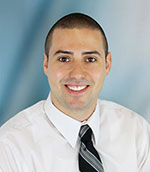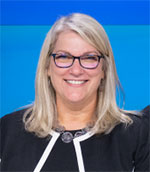Alumni Lessons for Current Students
New Office Hours program allows students to connect one-on-one with MEM alumni about their professional experiences and time in the program.
Ben Siegel (MEM '18) was a product engineer at motor vehicle manufacturing company BorgWarner, but he wanted to transition into a leadership role.
To do that, he turned to Northwestern's Master of Engineering Management (MEM) program. Today he is a product engineering manager at the same company, applying lessons learned in MEM on a daily basis.

Siegel shared those lessons, as well as ones he's learned throughout his career, with current MEM students as part of a new McCormick Office of Professional Education initiative called Alumni Office Hours. The program links students with professionals who went through the program and found success after graduation.
The goal is to give students the opportunity to have one-on-one conversations with alumni so they can ask questions to help guide them on their own career paths.
"MEM attracts very high caliber students, and I was more than happy to explain my professional journey, learn what they are struggling with, and help where I can," Siegel said. "I found my time in the MEM program very beneficial and was happy to talk to students about how to leverage the degree as best as they can."
Jennifer Erpenbeck (MEM '97) shared Siegel’s feelings.

Erpenbeck was entrenched in manufacturing and quality roles at Motorola when she turned to MEM. She, too, had visions of leadership roles but felt she needed further education.
"The allure of the MEM program lay in its unique fusion of technological prowess with business acumen, aligning seamlessly with my career aspirations," she said. "I envisioned the program as a conduit for acquiring complementary knowledge and experiences, thereby augmenting my managerial skills and paving the way for future leadership roles."
Erpenbeck and Siegel both spoke with students about how MEM influenced their career trajectories and shared key lessons from their time in the program. One of the biggest teachings they spoke of was knowing how to speak and interact with different audiences.
"I learned that clear and concise communication is paramount in galvanizing teams towards achieving shared objectives," Erpenbeck said. "Progressing through the program bolstered my confidence in articulating both business and technical matters."
During her time with MEM students, Erpenbeck explained the importance of embracing creativity and urged students to forge their own path.
"I encouraged them to pursue their passions diligently, emphasizing that the journey is as significant as the destination," she said. "Rather than fixating solely on promotions or lucrative salaries, I advocated for a focus on continuous growth and the accumulation of diverse experiences, which enriches the professional journey immeasurably."
Siegel believes the Alumni Office Hours program provides incredible value. He encourages MEM students to participate in future sessions.
"Alumni have seen the benefits of the MEM program," he said. "They can share those experiences with current students as the students navigate both the program and their next steps."

